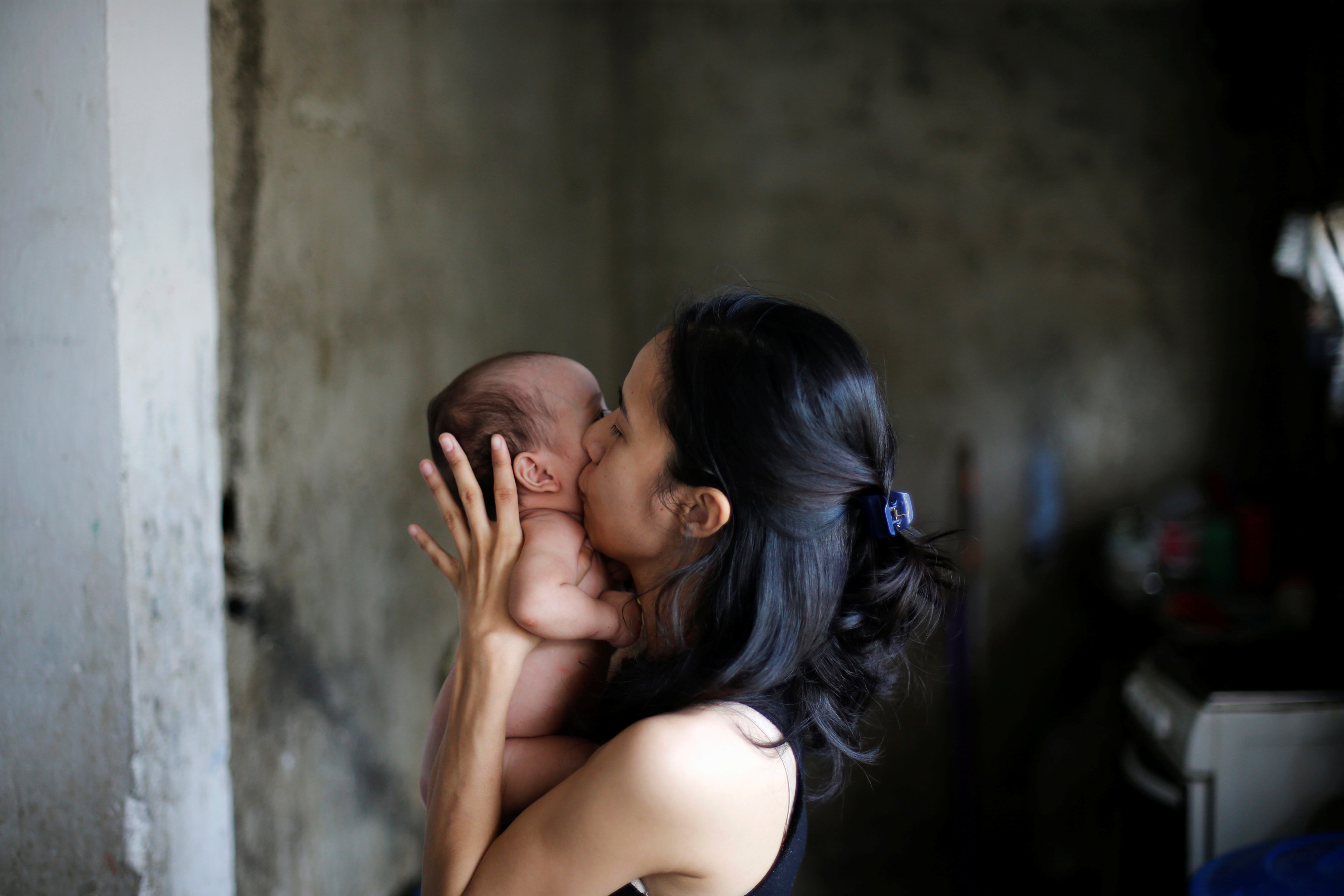
By Alexandra Ulmer
LOS TEQUES, Venezuela (Reuters) – Venezuelan siblings Jeremias, 8, and Victoria, 3, were in their pajamas and preparing to go to bed when a tear gas canister smashed through their family’s kitchen window in early July.
National Guard soldiers were pelting the building in this highland town near Caracas with tear gas canisters as they searched for opposition activists who had been protesting against unpopular President Nicolas Maduro for over three months.
Amid screams and insults from neighbors, soldiers stormed the building and arrested dozens of youths, according to the children’s mother, Gabriela.
Gabriela and her husband Yorth hid the kids in their bedroom closet as the apartment filled with thick gas after seven canisters crashed in. The guards did not enter their apartment, but the family was unable to sleep that night and the apartment reeked for days.
After that, the kids changed.
Jeremias cried and begged to leave Venezuela. His younger sister, previously not even scared of the dark, was terrified every time she heard a loud sound – an object falling, a truck, or thunder.
“She would say: ‘The soldiers are attacking us’ and cry,” said Gabriela, 30, a nurse by training. “That was the trigger for us that we had to get the kids out of here, otherwise it would be even worse for them psychologically.”
A month after the incident, the family sold what it could, packed three suitcases, and left Venezuela by bus with around $250 in their pocket, joining droves fleeing the country.
Out of fear of reprisals, Gabriela asked that their surname and country of residence not be published.
Her children’s case highlights the lasting psychological toll the OPEC nation’s economic and political crisis is having on its youngsters.
Venezuela, home to the world’s largest crude oil reserves, has spiraled deeper into chaos in recent years as Maduro – the narrowly-elected successor of leftist firebrand Hugo Chavez – has cracked down harder on the opposition amid a painful recession blamed by economists on his socialist government’s interventionist policies.
Recently, months of protests demanding early elections interrupted schools, leaving kids holed up at home or exposed to violence. A crippling recession has spawned shortages of products like milk and diapers, while rapid inflation means toys or school uniforms are unaffordable for poor families.
There is no recent data examining the psychological effects of the deprivations on children, but teachers, psychologists, rights activists and two dozen parents interviewed by Reuters suggest it could have a heavy toll.
“From a young age, children are being forced to think about survival,” said psychologist Abel Saraiba at Caracas-based child protection organization Cecodap. He said around half of his 50 patients have symptoms linked to the crisis.
Children are more prone to anxiety, aggression and depression, and could also struggle to relate with peers because they see the outside world as hostile. That could be another hurdle in Venezuela’s eventual reconstruction.
Maduro blames the opposition for traumatizing children and others via protests that often turned violent, with hooded demonstrators throwing stones and Molotov cocktails.
He says his government, which did not respond to a request for comment, has done more for children than previous administrations, pointing to youth orchestras, sports programs and vacation camps.

Yennifer Padron kisses her baby in her house at Petare slum in Caracas. REUTERS/Andres Martinez Casares
“MOMMY, WHEN IS THE FOOD BOX COMING?”
It is lack of affordable food – a kilo of rice costs around 20 percent of a monthly minimum wage – that is putting the most strain on children from poor families.
Some low-income families have little choice but bring their children to rough food lines at supermarkets or send them to work or beg. Parents say childrens’ games include pretending to find food at the supermarket.
In the most dramatic cases, kids suffer malnutrition and disease.
High up in Caracas’ sprawling Petare slum, waiter Victor Cordova juggles three jobs while his wife Yennifer cares for their three daughters and a baby boy in their tiny home.
The girls sometimes wake their parents in the middle of the night asking for food, and spend much of the day inquiring when government-subsidized food boxes will arrive.
“They’re always asking me: ‘Mommy, when is the food box coming? Will the food box have milk?’ I can’t get it out of their heads,” said Yennifer, 26, rocking little Aaron.
“I tell them they’re too little to worry about that, that they should only worry about studying. But they’re little sponges, they absorb everything.”
A minority of parents, appalled by once-booming Venezuela’s collapse into misery, try to hide the crisis from their kids.
Accountant Suset Gutierrez tells her two sons in the decaying industrial town of Ciudad Guayana that nighttime gunshots are fireworks from parties or exploding car tires.
“I’ve had to vary the stories because they’ve wanted to know about the parties,” said Gutierrez, 47, whose kids also asked why they don’t have more milk or pasta at home.
“I’ve had to invent that it’s because the cows have fallen ill or because heavy rains in other countries mean there’s no wheat.”
Outside Venezuela, Gabriela and her husband, who used to work as a company administrator, have found work selling flowers and at a cafe. They see their children steadily improving.
Once the family gets more economic stability, Gabriela said she will seek psychological help for them.
“They’re happy. The eldest tells me, ‘Look, there’s candy here!'” said Gabriela, laughing. “But if someone even suggests the possibility of going back to Venezuela, he starts to cry.”
(Additional reporting by Maria Ramirez in Puerto Ordaz, Anggy Polanco in San Cristobal, Mircely Guanipa in Punto Fijo, Francisco Aguilar in Barinas; Writing by Alexandra Ulmer; Editing by Girish Gupta, Daniel Flynn and Jonathan Oatis)








